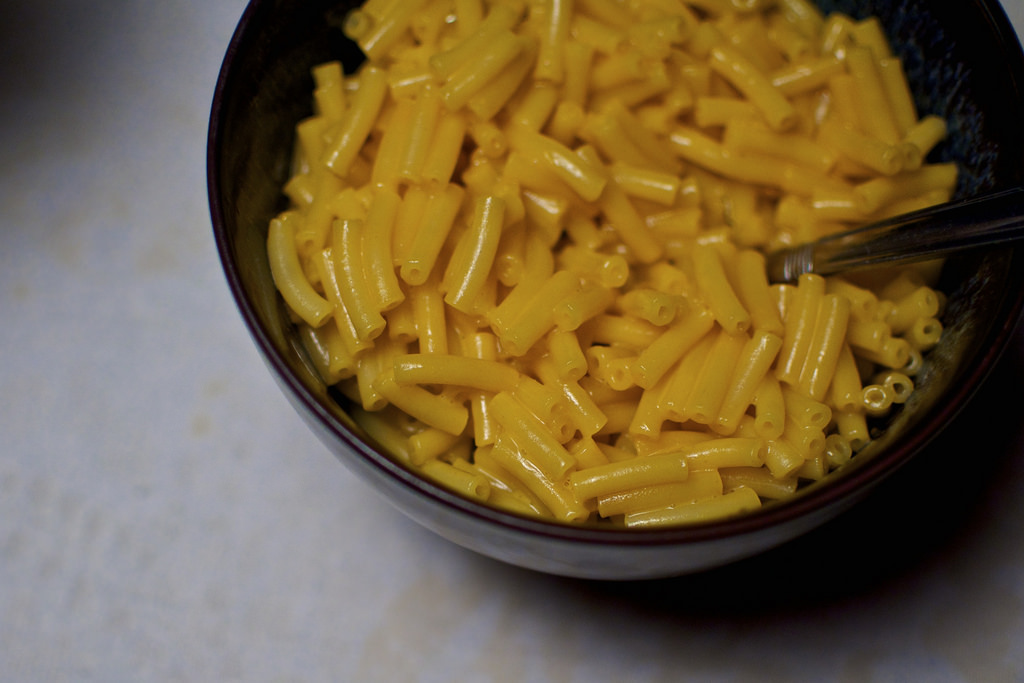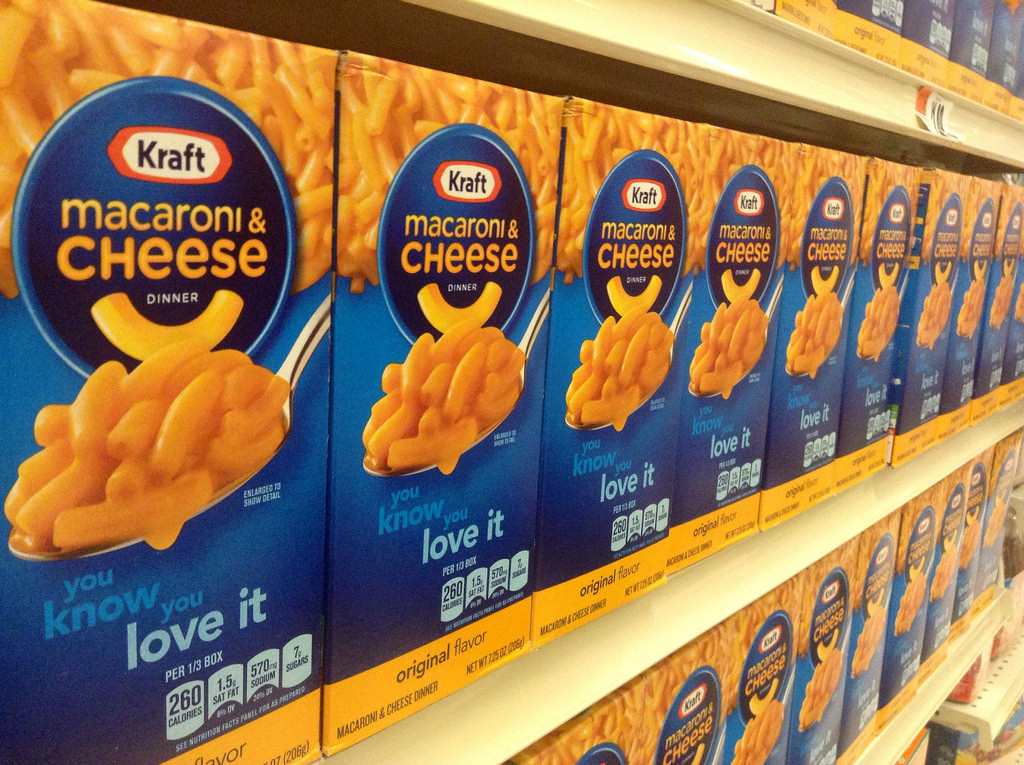The Hidden Ingredient in Mac and Cheese That You Probably Don't Want to Eat

By:
New research has uncovered a potentially dangerous chemical hidden in processed cheese products such as boxed macaroni and cheese.
 Flickr - staticflickr.com
Flickr - staticflickr.com
An analysis of 30 different cheese products, including string cheese, sliced cheese, and mac and cheese, found that consumers are ingesting phthalates—chemicals that are added to plastic products to make them more flexible and durable. That's according to the Coalition for Safer Food Processing and Packaging, a consumer watchdog group.
Phthalates aren't intentionally added to the cheese items. Rather, it appears these chemicals permeate into food from plastic materials used in processing and packaging. The cheese powder that's mixed into boxed mac and cheese contained the highest concentrations of phthalates—about four times higher than natural cheese products, according to the analysis.
Because companies aren't required to test for phthalates, it's hard to say whether the concentrations found in cheese products are exceptionally high compared to other processed foods. It's also unclear if the concentrations of phthalates are dangerous for human consumption, as there is currently no accepted levels of phthalates deemed safe for humans.
What is known is that phthalates disrupt the endocrine system, which is responsible for regulating hormones. In high levels, phthalates can cause fertility issues. They've also been associated with brain and behavioral development problems in children. At least one phthalate is believed to cause cancer.
As ATTN: previously reported, the U.S. Food and Drug Administration (FDA) has permitted certain ingredients in proceeded foods which are prohibited in other countries. Europe has banned the use of five phthalates in food packaging, for example; the FDA has not.
A spokesperson for Kraft Heinz, which sells 76 percent of the boxed mac and cheese products in the U.S., told CNN the company does "not add phthalates to our products."
 Flickr - staticflickr.com
Flickr - staticflickr.com
"The trace amounts that were reported in this limited study are more than 1,000 times lower than levels that scientific authorities have identified as acceptable," the Kraft spokesperson said. "Our products are safe for consumers to enjoy."
That may be true, but what the Coalition for Safer Food Processing and Packaging's analysis suggests is that exposure to phthalates may be more common than most consumers would think—and unintentional, long-term exposure to these chemicals over a lifetime could be associated with more adverse health effects than previously thought.
Phthalate exposure is particularly concerning for pregnant women, or women who expect to become pregnant. To limit exposure to these chemicals, health professionals recommend avoiding processed foods, limiting use of plastic kitchenware, eating more fruits and vegetables, and washing your hands regularly, The New York Times reported.
